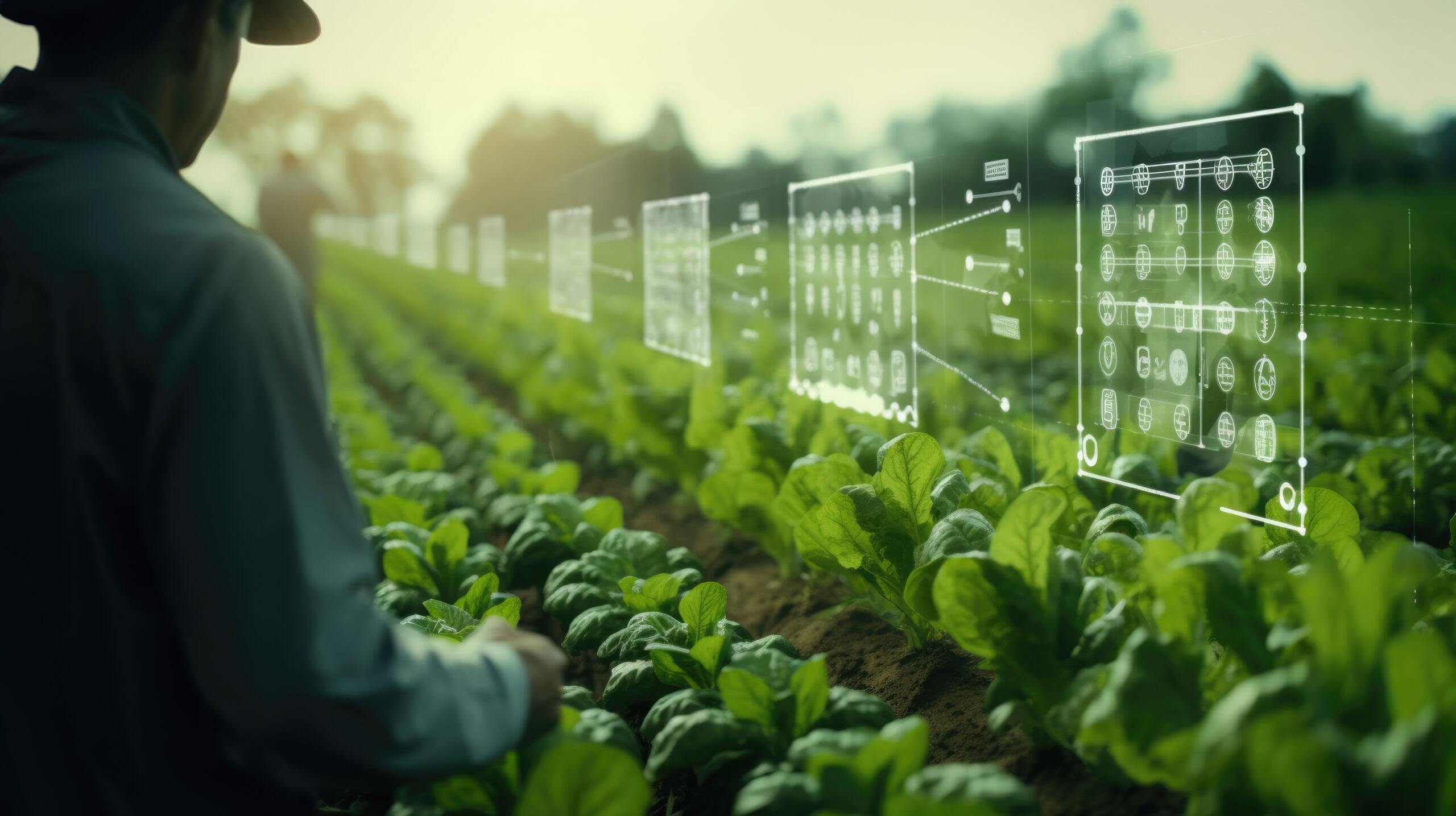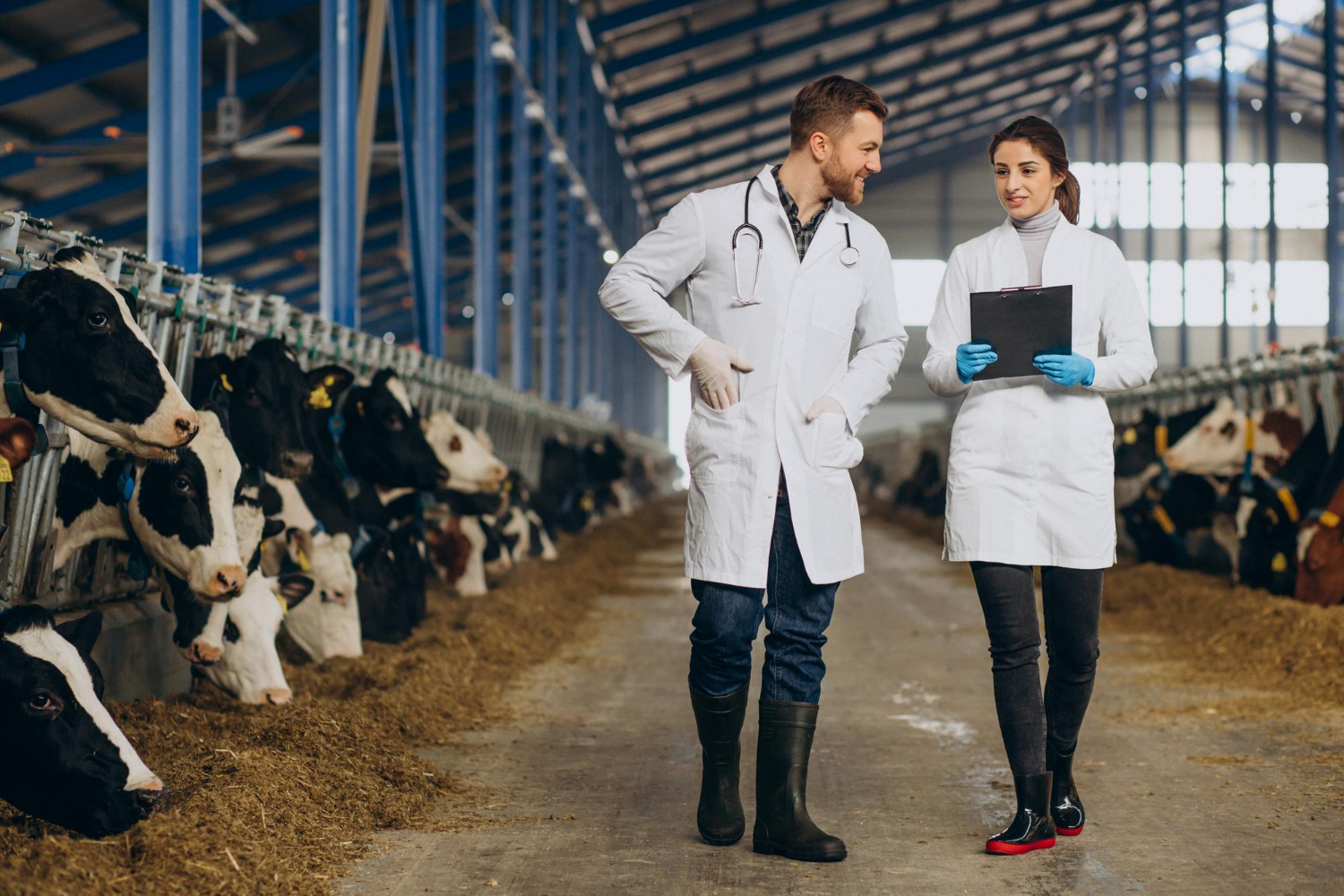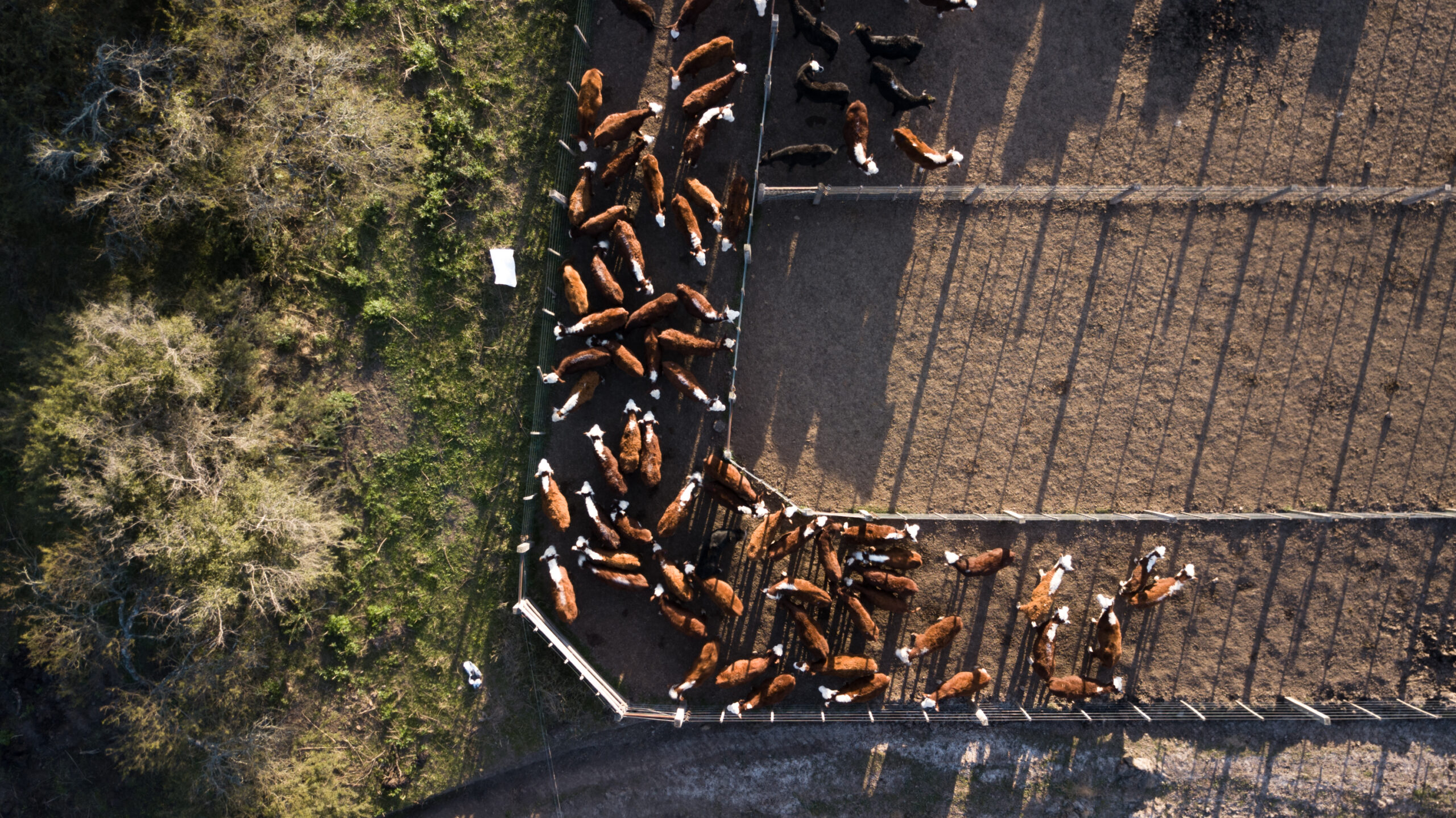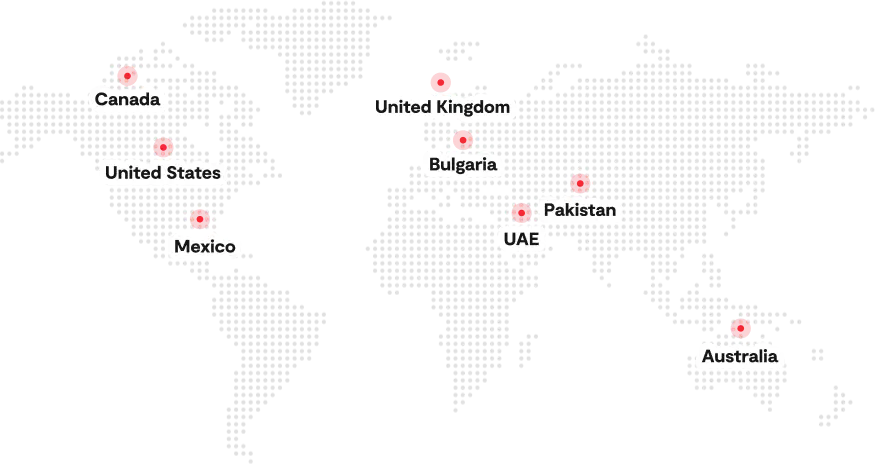In the past decade or two, the enterprise resource planning system has gained increasing attention in the agricultural industry. As farming operations scale up and grow more complex, farmers are required to manage tasks from multiple departments, including supply chain management, finance, logistics, HR, and operations.
Imagine if all these tasks were integrated into a single software system rather than being separately managed by farmers through multiple software programs.
This integration of various departments makes the ERP implementation in agriculture a powerful tool. By having all aspects of farming operations in one place, farmers can easily access and gather data from different departments. This can help them make better decisions and reduce the need for manual data entry and human errors.
In this blog, we will cover the main challenges businesses face during ERP implementation in agriculture. We will also look closely at how Folio3 AgTech’s ERP software can easily overcome these challenges and how, in the past, we have helped many successful agribusinesses migrate to the Folio3 AgTech ERP system.
Challenge 01: Limited Accessibility and Mobility
One of the challenges that many farmers and agribusinesses face with ERP implementation in agriculture is to access and manage these platforms from remote locations. Usually, in large-scale farm operations, farmers spend most of their time in the fields, away from office settings that have a computerized system.
However, to input data and track operations, farmers need a system that they can manage from every point in the field. Most of these fields are located in rural areas, where internet connectivity is not always strong.
Traditional agriculture ERP systems, which require a stable desktop setup or constant internet connectivity, fail to meet these needs. This makes it difficult for farmers to manage operations effectively and directly impacts the business’s productivity.
Solution
Folio3 AgTech’s ERP system lets businesses manage their fields from anywhere. Users can easily access and manage the agriculture ERP software from any device with an internet connection, such as a smartphone, tablet, or laptop.
This flexibility greatly improves accessibility.
It ensures that farmers and managers remain connected to their operations, make timely decisions, and manage tasks on the go, regardless of wherever they are.
Challenge 02: Complex Processes and Workflows
There is no single ERP solution that can fit the needs of all agricultural businesses. ERP implementation in agriculture can be quite challenging if it fails to address the specific requirements of a farming operation.
Every business has its own range of activities. Some might handle livestock, and some might be completely focused on cultivating crops, while others may work on meat processing.
In addition, most ag businesses’ operations are influenced by seasonal changes. For instance, planting, irrigation, and harvesting schedules may vary depending on the time of year.
Finding a single solution that caters to varying business needs and is customizable is not easy for businesses these days. Many companies struggle to find good agriculture ERP software that fits all their farming operations’ requirements.
Solution
The Folio3 AgTech ERP system is designed for flexibility and offers customizable modules. The modules can be tailored to agricultural operations’ diverse and dynamic requirements. This system does not follow a one-size-fits-all approach; instead, it allows agribusinesses to adapt its features to align with their specific workflows and processes.
By doing so, it ensures seamless digital management and fulfills ERP’s basic purpose. The software accurately reflects and helps farmers in improving real-world farm operations.
Our ERP system offers pre-built apps whether you need them for crop management, livestock tracking, or financial accounting. These apps ensure that businesses can start with a foundation that already caters to their specific needs.
This feature speeds up the implementation process and significantly reduces the need for extensive customization.
Challenge 03: Data Management Issues
With the passage of time, agriculture is becoming more and more tech-savvy. Agricultural businesses are getting equipped with advanced technologies to run their farming operations more effectively and boost productivity.
Farmers nowadays use sensors, drones, satellites, weather stations, etc, to gather data and gain insights from them to make decisions.
The data obtained from these sources is huge. Suppose businesses don’t have an efficient system to organize, store, and analyze this data. In that case, many of the valuable insights that could be derived from it may go unnoticed or unused.
ERP data management doesn’t usually provide real-time data and analytical features, which might lead farmers to make incorrect and miscalculated decisions that can badly affect the agricultural operation’s productivity.
Solution
If you decide to opt for the ERP offered by Folio3 AgTech, you won’t need to worry about how data from your existing hardware or software programs will be integrated. Our ERP system allows a smooth flow of data across platforms and enables farms to continue using their current technologies without interruption.
Unlike other ERP systems that provide basic reporting tools and general analytics, Folio3 AgTech addresses data management challenges by incorporating advanced analytics features directly into the platform.
This feature enables agribusinesses to apply predictive farming practices, forecast crop yields more accurately, and monitor soil health in real-time. The ERP system can also help farmers generate custom reports and detailed dashboards using comprehensive data collected from various technological sources.
These tools not only provide actionable insights for farmers but also simplify the complex data into more understandable and usable formats.
Challenge 04: Threat of Data Security and Privacy
We have just discussed how farmers are increasingly reliant on data to make informed decisions. The data that farmers assess daily covers everything from crop yield statistics to financial records. If farmers use an ERP program, this data is usually integrated into one place.
This raises concerns about data security and privacy. Most agriculture ERP solutions lack features that protect data from being leaked, stolen, or tampered with. With cyber-attacks becoming more frequent and sophisticated, agribusinesses must deploy a system with strong data security measures.
Solution
To address these critical issues of data security and privacy, ERP software, such as the one offered by Folio3 AgTech, uses comprehensive security measures to protect sensitive information. This includes data encryption to protect data in transit and at rest. This is done to ensure that even if data is intercepted, it remains incomprehensible to unauthorized users.
Access controls are rigorously applied to ensure that only authorized users can get access to specific data. This minimizes the risk of internal misuse or external breaches.
Furthermore, regular audits are conducted to assess and improve ERP’s security system, identify vulnerabilities, and ensure that the latest security standards and regulations are followed.
Challenge 05: Complex Regulatory Compliance and Reporting
One of the most important components of running a farm is handling stringent government regulations. From environmental protection laws to food safety standards, regulatory compliance is a moving target, and each country has its own set of requirements.
To manage regulatory compliance and reporting, businesses need to generate accurate and timely reports for compliance purposes.
Traditional ERP systems, especially for food, often lack features that can automate the whole compliance process. This gap can lead to increased administrative burden. Businesses that fail to follow standards are at risk of being penalized, which can damage their credibility.
Solution
Folio3 AgTech’s ERP offers specialized modules for regulatory compliance management and automated report generation. By incorporating these functionalities within the ERP system, agribusinesses can adhere to evolving industry standards and regulations without much effort.
The system provides current legal requirements across different jurisdictions, reducing the risk of non-compliance.
Additionally, automated report generation streamlines the process of compiling necessary documents and forms, ensuring their accuracy and timely submission.
Challenge 06: Lack of Training and Adoption
ERP implementation in agriculture is slow due to a shortage of skilled personnel and a lack of knowledge. The system’s complexity and technicalities make the process more difficult to adopt. According to research, only 49% of ERP implementations are successful due to the complex nature of ERP.
The barriers to ERP implementation in agriculture might increase when employees are not provided with the required training. For example, employees might resist changing from traditional methods to a more technologically advanced system due to a lack of understanding or fear of the new processes.
To tackle this, it is important to properly train employees and ensure they are comfortable with all the technicalities of the system so that they can use it efficiently.
Solution
To counter these challenges, Folio3 AgTech provides agriculture ERP solutions with detailed training resources designed to be intuitive and user-friendly. They develop customized training programs, including on-site workshops, video tutorials, and user manuals, to match each team’s specific needs and learning pace. In addition, incorporating engaging corporate video production services can enhance the effectiveness of training programs by providing visual demonstrations and real-life case studies for a more interactive learning experience. Furthermore, using an AI video editor can streamline the creation of high-quality video content, allowing for more efficient and customized training materials.
This approach ensures that employees feel confident using the system, facilitates easy adoption, and allows the organization to effectively leverage the ERP system’s maximum capabilities. To further improve accessibility and user experience, incorporating a video transcoding service can ensure training materials play smoothly across all devices and varying network conditions.
How Folio3 AgTech Has Helped Businesses with ERP Implementation in Agriculture
Over the last few years, our team of AgTech experts has helped several businesses overcome these challenges and successfully implement ERP into their operations. The number of distinct offerings of our ERP solutions has always compelled businesses to opt for Folio3 AgTech as their tech partner.
One such example is Rombola Family Farms, a leading agricultural business that specializes in crop planning, cultivation, harvesting, and distribution. The company approached Folio3 AgTech with several challenges. It experienced difficulty scaling its existing systems, lacked data visibility, and relied on manual reporting processes with security issues.
The company required a well-integrated and robust farm management and ERP solution that could help Rombola seamlessly manage all aspects of its business. After extensive discovery calls, our team of experts tried to fully understand all the challenges. Then, they designed a wireframe that would help build the solution.
The end-to-end ERP solution that we designed for Rombola Family Farms had the following key features:
- Season Planning & Forecasting: The solution provided Rombola with the ability to plan ahead for each season based on crop, variety, and planting date.
- Crop Planning: The solution allowed Rombola to define its own phases for each crop and organize activities.
- Work Order Management: With this feature, Rombola could assign tasks to workers and track their progress in real time. This improved overall efficiency and reduced errors.
- Field Work Execution: Workers could view their assigned tasks and report progress through the mobile app, which would provide managers with real-time visibility.
- Investigations & Observations: This feature allowed Rombola to perform scouting activities and record observations.
Conclusion
Overall, ERP implementation in agriculture comes with its own set of challenges. The fact that the industry is still in the phase of getting equipped with tech further adds to businesses’ resistance to shifting towards such a complex system. However, this doesn’t outweigh the benefits that ERP implementation brings to a business.
By using an integrated system that connects all aspects of the farm’s operations, businesses can significantly improve their efficiency and make better decisions based on the real-time data they receive.
The key is choosing the right ERP solution, and businesses can rely on Folio3 AgTech for that. Our company offers comprehensive ERP solutions designed specifically for the agriculture industry.
With our expertise and experience in this field, we have helped several businesses overcome their challenges and successfully implement ERP to improve their operations and profitability.
FAQs
What Does ERP Stand for in Agriculture?
ERP stands for Enterprise Resource Planning, which is a management system that integrates various processes and operations within an organization to improve efficiency and decision-making.
What is ERP for Sustainable Farming?
ERP for sustainable farming is an integrated system that helps farmers manage their resources more efficiently, reduce wastage, and make better crop rotation, land management, and resource allocation decisions.
What is Plant Maintenance in ERP?
Plant maintenance in ERP is the management of equipment, machinery, and other assets in a plant or agricultural operation. It includes tasks such as scheduling maintenance, tracking repairs and costs, and monitoring asset utilization.






